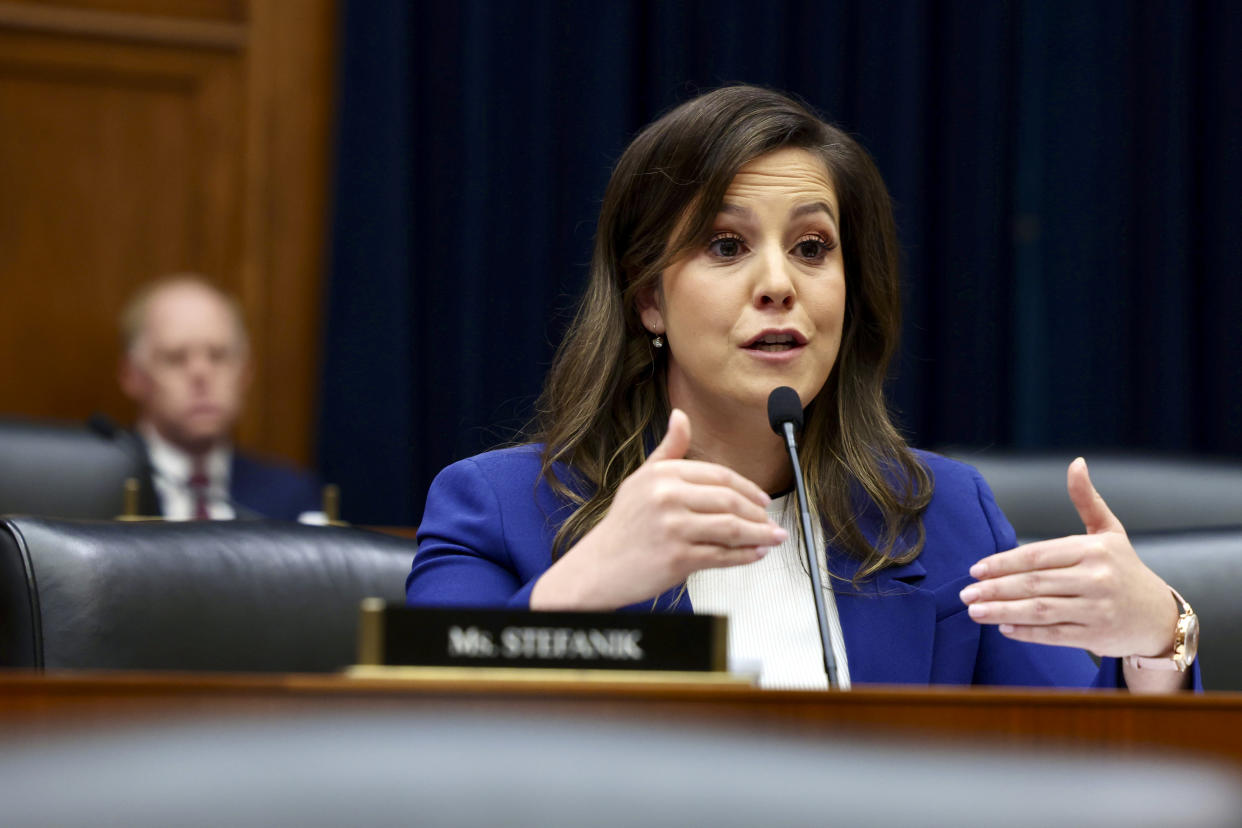Elise Stefanik Has Gained Widespread Attention in Antisemitism Hearings

Rep. Elise Stefanik, R-N.Y., may not be a committee chair, but perhaps no Republican lawmaker has more forcefully clashed with elite university leaders over how they are handling antisemitism on campus.
Her line of questioning at a December hearing helped push the presidents of Harvard University and the University of Pennsylvania out of their jobs. Last month, she put Columbia University’s president in the uncomfortable position of negotiating faculty administrative decisions from the witness stand.
If past patterns hold, Stefanik will now have a chance to question the leaders of a fresh batch of major universities.
Sign up for The Morning newsletter from the New York Times
Stefanik, 39, was already a rising star within her party before the outbreak of the Israel-Hamas war turbocharged concerns about antisemitic incidents in American education. A Harvard graduate herself, she is the top-ranking woman in Republican House leadership and is considered a potential presidential running mate.
But her exchanges with the leaders of Harvard and Penn attracted enormous attention and won some rare plaudits from grudging liberals. In April, she was named one of Time’s 100 most influential people of 2024.
Stefanik struggled to land a clear blow in a hearing with the president of Columbia, Minouche Shafik, in April. But she still elicited some of the most memorable testimony, demanding that Shafik remove from an academic leadership position a professor who used the word “awesome” when describing Hamas’ deadly Oct. 7 attack.
Stefanik later called for Shafik to resign anyway.
When Stefanik first won her seat in 2014, she was the youngest woman ever elected to the House. She beat a centrist Democrat, and in the early days of her career, she took on more moderate stances.
These days, she describes herself as “ultra MAGA” and “proud of it.” Democrats particularly detest her close embrace of former President Donald Trump and his lies about the 2020 election.
c.2024 The New York Times Company

